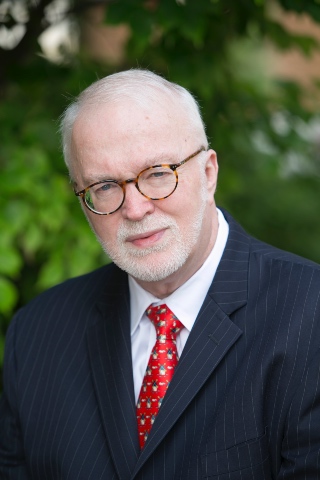
In 2004, then-dean of Samford University’s Beeson Divinity School Timothy George released Pilgrims on the Sawdust Trail: Evangelical Ecumenism and the Quest for Christian Identity, the first in the Beeson Divinity Studies series.
Three more books were released in 2006, 2009 and 2011, with the series “dedicated to the pastoral and theological renewal of the Church of Jesus Christ.” Sponsored by Beeson faculty, and featuring several essays written by the school’s professors as well as other renowned Christian leaders, the series focused on theological topics of interest, arising from conferences hosted by Beeson.
George, who now serves as distinguished professor of divinity, recently sat down to discuss the series’ anniversary.
Q: How did the Beeson Divinity Studies come to be?
A: “In the early days of Beeson, we began to host special conferences on theological topics of interest. These conferences would last about a week. Papers would be given. The idea of bringing these papers into books arose, from either myself or from Baker. It ended up being four volumes, all organized around different themes—Trinity, evangelicals and the Nicene Creed, evangelical identity and ecumenism. Some of them sold very well, some were adopted as textbooks. The most popular was God the Holy Trinity. Like the conferences themselves, the goal of these volumes was to be practical and spiritual while still being academic and theological. These seemed to have met a need in the life of the church at the time.”
Q: What was the goal of the series?
A: “Aiming to build up the church with sturdy theological work. We teach theology, but a lot of these themes are deep and vast—Trinity, Bible, etc. We wanted to be able to explore these themes a little fuller than we could in just a lecture. These conferences and subsequent books allowed for a more expansive approach to deep theological work.”
Q: What all goes into making these books into reality?
A: “As conference volumes, we worked on the conference first of all. Who were the speakers? Who did we want to come to these? We also wanted to keep our students in mind. Students had priority in terms of attendance and participation. It was student-focused conferences sponsored by the school. They were similar in some ways to the Pastors’ School (now Lay Academy). The Pastors’ School was a model for how we would run these conferences. We tried to make these worship events too, so it was not just dry, boring theologians talking to each other. It was doxological which fit the philosophy of theology we had a Beeson. We had music, prayers, liturgies, etc. It was a worship event in that way. When inviting speakers to come, we told them up front we would like to turn their presentation/paper into a printed volume. We told them we expected a volume to come out of the conference. We asked them to submit their paper before the conference (though we never received many of those). We had a representative from Baker who attended who would give input on the speakers, topics, what would make for quality contributions to a book. It was a collaborative process.
When we would have big professional meetings, we would advertise these volumes, give them out. In that way, it fit into the mission of Beeson Divinity School where God-called men and women were trained for service in the church.”
Q: How did the series build Beeson’s reputation as a theological seminary?
A: “Insofar as the series was a success and people bought, read and used the books, I think it enhanced the reputation of Beeson as a school that did quality theological work as a part of its mission. That was not the reason why we did it, but it was a beneficial consequence of these conferences and volumes. We wanted to do this in keeping with the mission of Beeson. A few years ago, ATS, our accrediting society, had a theme, “What is theological about a theological school?” I think there are some schools where there is very little that is theological about them. We wanted to plow some new ground to say that Beeson was a theological school that trained pastors and ministers who could preach.”
Q: Twenty years later, where do we stand in regard to the ideas of Christian unity and identity discussed in these books?
A: “The issues have not changed. They are still foundational to what a theological school ought to be about. Our context has changed. The atmosphere in which these issues are discussed has changed. The danger is becoming distracted by the politics of the moment. That is to the detriment of the church and its mission when that happens. That is another way of saying that there is all the greater need for this kind of initiative. It might be harder to do now. We do not have as much support within denominations. There was a common core of commitment that did not displace denominational commitments that may be thinner today than it was back then. We are maybe more easily seduced by triviality, flippancy, shallowness, by not taking seriously the mandate of the Gospel. So, we wanted to show that real, deep theology had fiber in its system—that it was not just an idea or head game. As the puritan theologian William Ames said, 'Theology is the science of living in the presence of God.' These books were ways to hold this up as an ideal. Another advantage of these conferences was it brought together for our students, and the pastors who came, a collection of the world’s leading thinkers and theologians to do some of their best work right here at our school. That in itself was a great blessing. So, I have talked myself into starting another series here.”
The four books in the Beeson Divinity Studies series are: Pilgrims on the Sawdust Trail, God the Holy Trinity, J.I. Packer and the Evangelical Future and Evangelicals and Nicene Faith.
